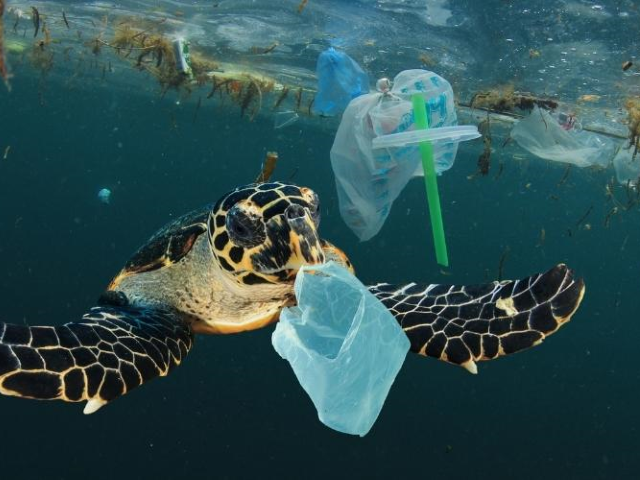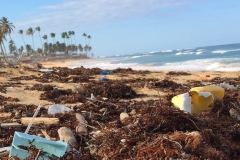Crowdsourcing, Copernicus and Hyperspectral Satellite Data for Marine Plastic Litter Detection, Quantification and Tracking (REACT)
The REACT project is focused on presenting a Proof-of-Concept on remote sensing of marine plastic litter. The project goal was to develop a methodology to detect plastic litter offshore. The methodology exploits data fusion of multispectral (e.g., Sentinel-2, VHR) and hyperspectral satellite data (i.e., PRISMA), together with in situ data collection, and takes advantage of two different approaches, the first one based on spectral signature unmixing and the second one on artificial intelligence methodologies.
The key user targeted by the project was the Regional Agency for the Environmental Prevention and Protection of Puglia Region (ARPA PUGLIA), which was in charge of detection and monitoring marine plastic litter in the framework of the European legislation (i.e. MSFD). The project included also other potential users to support waste collection/beach cleaning services by local authorities, highlighting beaches with high quantities of plastic litter and helping in prioritise field activities. Furthermore, REACT has provided useful information to association of recreational bathing facility owners as well as tourists on the level of beach cleanliness.
 The project addresses the end-user needs of:
The project addresses the end-user needs of:
- Performing regular monitoring of marine plastic litter over wide areas;
- Providing spatial and temporal dynamics of plastic litter;
- Supporting field campaigns, providing actionable information to ease in situ activities.
Furthermore, the proposed approach is cost-efficient, repeatable, and flexible, from local to country level.
REACT involves two different space assets: Earth Observation and Navigation. About the first asset, the project exploits data from the Copernicus Programme (i.e., Sentinel-2 and CMEMS products) together with data from the PRISMA mission by the Italian Space Agency. VHR data has been also investigated (e.g., WorldView-2 data). About the navigation asset, ARPA Puglia monitors marine plastic litter along the Puglia coastline every two months, collecting types, dimensions and GPS coordinates of observed plastic litter. Those data have been made available in the framework of the REACT project. Finally, crowdsourcing information have bene provided by “Puglia Fishing for Litter”, which is a project by Puglia regional authority for encouraging fishing boats to collect plastic debris during fishery in order to monitor quantities and types of plastic debris. ARPA Puglia was among the actors of the project.
Project partners are National Technical University of Athens (NTUA), Agenzia Regionale per la Prevenzione e la Protezione dell'Ambiente Puglia (ARPA Puglia).
REACT is among the 26 innovative projects selected by ESA through its Open Space Innovation Platform. The goal of OSIP is to develop novel ideas for monitoring marine litter from space, improve understanding, and thus provide the data necessary to propose appropriate solutions.
Read more
- ESA website "detecting plastic marine litter from space"
- Copernicus Observer "detecting marine plastic litter in the Mediterranean"
- "Pansharpening PRISMA data for marine plastic litter detection using plastic indexes" IEEE Access, Volume 9
- "A Combination of Machine Learning Algorithms for Marine Plastic Litter Detection Exploiting Hyperspectral PRISMA Data", MDPI Journal, Remote Sens. 2022, 14
- "Increasing the Sentinel-2 potential for marine plastic litter monitoring through image fusion techniques", Science Direct - Marine Pollution Bulletin, Vol. 182, September 2022, 113974






